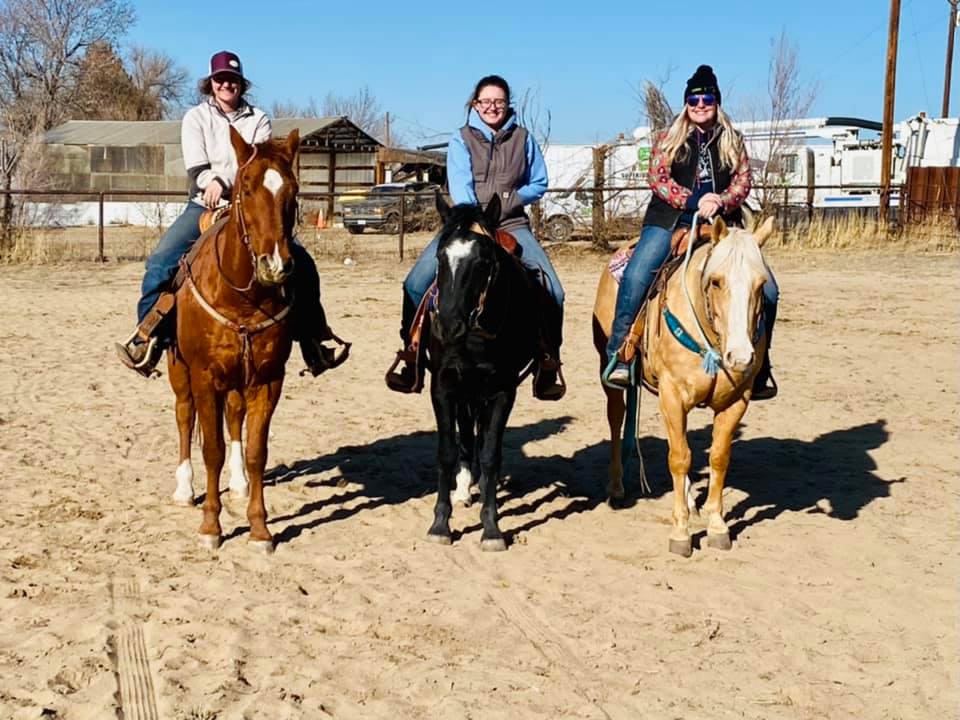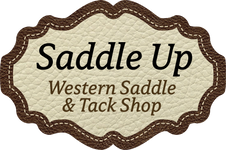Your Perfect Horse - 10 Tips To Help You Choose The Right Horse
Posted by Lynnsy Diekman - Saddle Up on Jan 20th 2021
Purchasing a horse is a huge decision and can be very overwhelming. There are so many factors that go into it and so many things to consider. You want to make sure you do your research and find a horse that fits your style and experience level. If you are a novice rider, a novice horse would not be the ideal choice. We see it a lot in our business where people who are just starting out, buy young/unbroke horses. This can be extremely dangerous and can lead to frustration on both ends. It is good to find an experienced horse to boost your confidence and skill level then try to learn with a horse who doesn't know anything. Here are some helpful guidelines to follow when looking for your perfect horse. These are great for novice riders and experienced riders, too!
1. Choose the right size
Horses are measured by hands and 1 hand is equal to 4 inches. This is a preference for many people. Some like to ride shorter horses and some prefer taller horses. It depends a lot on the size of the person and what you will be doing with a horse. For example, if you are wanting to team rope and you are a 6 foot tall man, a pony wouldn't be your ideal choice. It is said that horses are more comfortable when carrying no more than 15-20% of their body weight. This is for adult, healthy horses. If you have an older horse or a young/baby horse, they aren't able to carry as much weight and it can do damage. When horse shopping, just take in to account what you are doing and if the horse is built to that with your weight. Also remember your tack adds weight too.
2. Choose the right breed
There are over 350 breeds of horses and ponies out there. Certain ones have proven to be better at a certain discipline than others and that is what they are bred for. For example, Thoroughbreds excel on the race track, but may struggle in the roping pen because they are built more narrow. Certain breeds are said to have certain personalities as well! One of the most popular and versatile breeds are Quarter Horses. I do believe each individual horse is special, just like humans. I am terrible at math, but really good in other subjects. I think the same goes for horses and just because they are bred to do something, doesn't mean they will be good at it. I have be proven by horses in the past that have strived at things that they shouldn't be able to do. Everyone does have a preference and does it make a difference so feel free to do a little research on different breeds!
3. Choose a horse that fits your personality
Like I said previously, each horse has their individual traits. Some are moody and some are extremely loveable. Their attitude can change day to day, but it is important to find a horse you get a long with. I personally do not get a long with mares so I ride geldings. Our personalities just match better and at the end of the day, I enjoy riding more because we get a long. There are horses that are on the lazy/quite side and then you can have a hot/anxious horse that might suit you better. It is important to spend some time with a horse before making that final decision.
4. Choose a horse that matches your experience level
If I could scream this from the rooftop, I would. This is so, so, so important. So many times I see novice people getting novice horses so they can "learn together". This is so dangerous. If you are uneducated and the horse is too, it can develop bad habits, mixed signals, aggressive behavior, or even lead to the rider getting very hurt. A young horse is like a kid, they don't know how to behave. They need guidance from someone experienced. Having a novice horse and rider can lead to injury and the rider not enjoying being a horse owner because it is a constant battle. In some cases, this has turned out fine, but it is best to pick a horse that fits your skill level. If you are new to this, having a really safe, broke horse to teach you, will help you in the long run. It will help you learn more and boost your confidence. There is such a thing as too broke of a horse for a novice rider. If a horse is super trained and has fancy buttons and the novice rider doesn't know how to apply them, it can lead to injury as well. Young horses can be enticing to new people because they are advertised for a cheaper price, but it is not worth your life. Also, if you are looking for a kids horse, be even more careful. Unfortunately, horse people can be very dishonest. Finding a safe horse for your kiddo is a huge deal! Do your research and evaluate your skill level before purchasing a horse. Do not be embarrassed, everyone starts somewhere, but it is better to do it safely.
5.Choose a horse that suits your riding goals
This is an important one for sure. Think about what you are looking to get out of riding. Are you just doing it for fun or do you want to compete in an event? This can include choosing a certain aged horse or a horse trained for a certain discipline. If you are wanting to make it big in barrel racing, you wouldn't really be looking at hunter jumper horses. You just need to figure out your goals and choose a horse that will help you get there. If you are wanting to rope, you would check out horses that have been introduced to roping and are good being around cows. Breeding is a huge factor to this, but also their training and what they have been exposed to.
6. Bring someone more experienced with you
When you decide to go look at a horse, it can be helpful to bring someone more experienced with you. However, keep in mind that this is your decision. Don't let anyone force you into a horse or persuade you to choose one that you are not comfortable with. The person can look for things that you wouldn't necessarily notice and they can ask questions to guide you if needed. They can also steer you away from false advertising or unsafe situations. There are many things to be aware of when checking out a horse in person. For example, I have two rules when horse shopping. I always ask the owner to ride the horse first. If they refuse, that tells me this horse is not safe and not the right option. The second rule is if I pull up and the horse is already saddled, tied up, and sweaty, I will not even attempt to look at it. The owner has to ride the snot out of him before I get there? That is just a red flag to me and indicates that this horse is not safe. If you bring someone with you they can also help spot anything that looks to be an injury or health issue.
7. Prepare questions in advance
You can never ask too many questions when horse shopping. You want to know everything and anything about this horse. If there is a vice or issue, you definitely need to know. Some great questions to ask are: Why are you selling the horse? How old is the horse? What is its medical history? Any known issues or maintenance needed? How is its temperament and is it consistent? Well trained? How often are they ridden? Has it been known to kick or bite? Any vices or bad habits? I could go on forever with questions to ask, but these are some really good ones to get to know the horse. Be cautious, as I said before people sometimes aren't always honest. Something to keep in mind is a horse is a free willed animal. So it may not have done anything with its previous owner, but it can still happen in its lifetime. Always be prepared and never let your guard down with a horse. They are still animals and have a mind of their own.
8. Test ride
A test ride is a big step in buying a horse. It can tell you so many things and even be the deciding factor to you purchasing this horse. A lot of people, even myself, purchase horses sight unseen. This can be amazing and work out great, but on other occasions it can end badly. If you can go see the horse in person and ride them, then I would highly suggest doing so. Just remember, always let the owner ride first. Definitely spend some time riding this horse before deciding. Make sure you get a long and that it is the right match.
9. Vet check
Always have your vet take a look at a horse before purchasing. They could find nothing or they could find something. It may validate an injury that the owner is claiming or it may uncover something that the owner doesn't know about or is being dishonest about. A lot of the time horses with injuries or issues are advertised at cheaper prices. This is eye catching, but you need to know what it entails before jumping on it. A lot of issues can be managed now, but it can get pricey. It can also dictate what the horse can and can't do. This is a big one for performance horses. If the horse is not able to do what you need, then it is not the right fit. If you are in love with the horse, it is worth looking into treatment, but get prices for sure. That way you can see if it is doable for you financially.
10. Take your time
Buying a horse is so exciting and you just want to get one and start this journey, but time is very important. Don't make a fast decision. Make sure it is the right fit and that you click with this horse. Just because it has four legs and a tail doesn't mean it is your perfect horse. It is not like owning a car. It is also important that you don't get hung up on color or looks when buying a horse. If you have a breeding program and that is what you need to look for, then that is a different story. However, if you are wanting to trail ride, barrel race, rope, or any discipline, don't buy based off of looks. It is nice to have a pretty horse or to get your "dream horse", but safety and the horse's mind are much more important. If the horse is safe, kind, and what you are looking for then color doesn't matter in my opinion. I heard a saying when I was little and I take it very literal. The saying goes, "You can't ride pretty." There are bad horses out there and some of them are gorgeous, but pretty isn't everything. Some of my best horses have been plain, ranch looking horses. Try to have an open mind and consider all options to find the best fit for you!
We wish you luck in horse shopping and as always, reach out if we can be of help!

